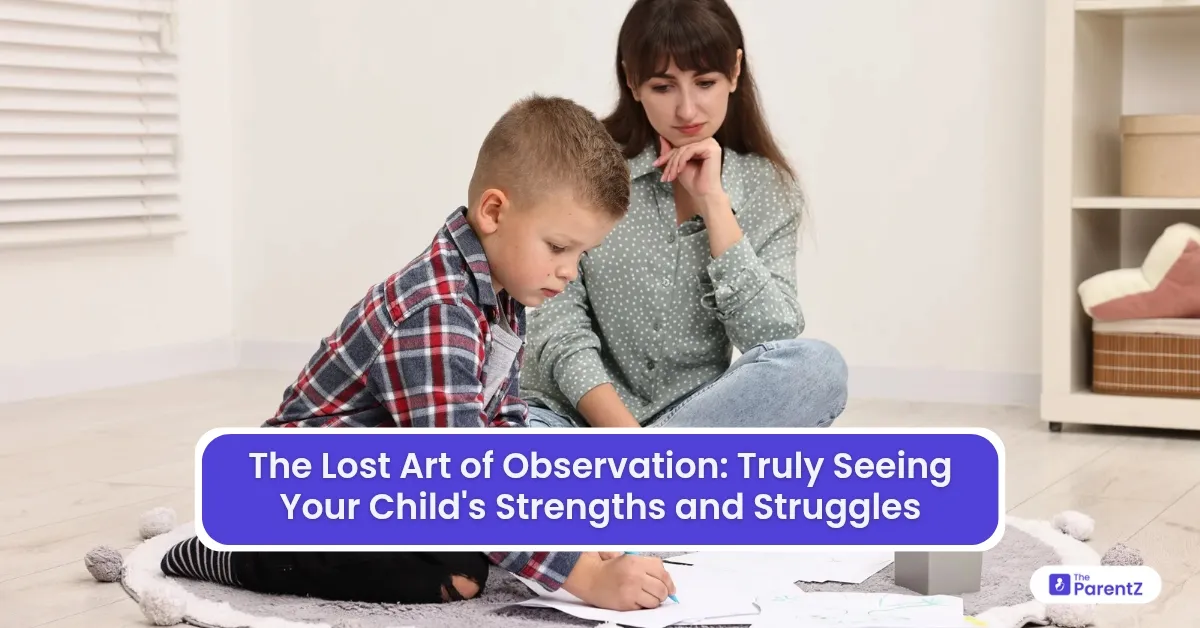It’s time to be honest—when was the last time you really observed your child?
Not while multitasking. Not while glancing up from your phone. Not through the lens of what you hope or expect. But truly saw them—how they move, react, wrestle with challenges, or light up over something small.
In today’s fast-paced parenting world, observation has become a lost art. But what if reviving it could change everything—from how you connect with your child to how they see themselves?
Read this article to explore some effective tips on how you can revive your observation skills and truly see your little one’s strengths and struggles.
The Daily Noise That Drowns Out Insight
It’s easy to miss these cues. Between schedules, school runs, deadlines, and constant digital distractions, parenting can feel like triage. We react to what’s urgent instead of tuning into what’s quiet but important.
And yet—those quiet cues often say the most.
The clenched jaw during homework? It’s not just frustration—it’s a sign your child may be putting pressure on themselves. The withdrawn mood after school? That’s not “just tiredness.” It might be social stress or an unmet need they don’t have the words for.
When you slow down enough to notice, you begin to understand. And understanding builds connection.
Seeing Strength Beyond the Obvious
Your child’s strengths may not always look like gold stars or loud accomplishments.
Maybe your kid doesn’t ace math, but they’re endlessly patient with their younger sibling. Maybe they’re not outgoing, but they’re thoughtful, perceptive, and emotionally intelligent. These strengths are easy to overlook because they don’t shout. They whisper.
And they need your validation.
When a child feels seen for who they are, not just what they achieve, it builds self-worth from the inside out. They begin to trust themselves—not just to meet your expectations, but to live in alignment with their own gifts.
Reframing Struggles As Signals
Too often, we rush to correct behavior without asking what it’s trying to communicate.
That stubbornness? It might be your child trying to assert independence. That “attitude”? It could be anxiety in disguise. The tears over seemingly minor things? A signal they’re holding in more than they can manage.
Observation helps you decode these signals. It reminds you to approach behavior with curiosity instead of control.
Practicing the Art of Noticing
You don’t need a parenting book to get better at this. You just need to be there, eyes and heart open. Here’s how you can begin:
- Start with five minutes a day. No phone, no agenda. Just watch your child play, read, or talk.
- Write down what you notice. Not just what they did—but how they felt, how they solved problems, how they expressed themselves.
- Ask, don’t assume. “You seemed upset after class—what was going on?” gives space for conversation, not correction.
- Reflect instead of react. Sometimes the best response is not advice—it’s a quiet nod that says, I see you.
Conclusion
Every child longs for this—to be seen, known, and accepted for who they are. And as their parent, you hold the power to offer that gift daily.
It’s easy to fall into doing more—more structure, more lessons, more achievement. But sometimes, the most transformative thing you can do is simply observe. Step back. Stay close. And really look.





Be the first one to comment on this story.